Going Overground: The Risks and Rewards of Indie Games Going Mainstream
How can indie games reach higher sales without sacrificing what makes them unique?
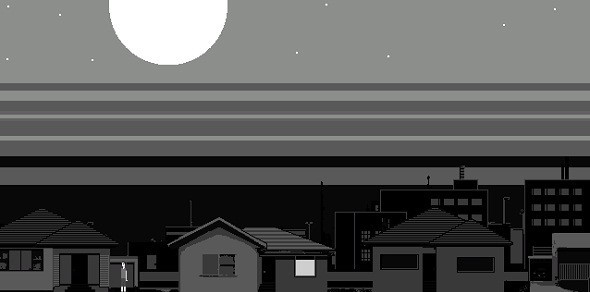
Charlie Brooker's 15 Million Merits is a pessimistic, almost cautionary tale of how everything is eventually consumed by the mainstream. In it, Bing, a young man from a dystopian Britain, forces his way onto a talent show called Hot Shots to scream a protest against popular culture. Holding a shard of glass to his neck, he bellows, rants and raves, shouting "f**k you for happening" at the trio of smug judges and haranguing the audience to stop watching.
When he's done, the whole room falls silent. Just as you expect the Secret Police to come in and escort Bing to somewhere nasty, one of the judges pipes up and, in a way that couldn't be more Simon Cowell if it was wearing a tight black t-shirt, says "that was, without a doubt the most heartfelt thing I've seen on this stage since Hot Shots began." And the crowd goes wild. And the next time we see Bing he's on the telly, broadcasting live from his fancy new condo.
This is the place independent games are at now. A couple of years ago, they felt underground and hidden, a kind of shoegaze alternative to the AAA's top 40. Now, they're on the cusp of fame. Sony's PS4 is going to push indie games heavily; last year, two people made a film about them.
And why not? Of course, like anything else, the independent space isn't immune to clangers, but the genuinely good independent games, of which there are plenty, are smart and intelligent and unique. Independent videogame developers have existed since the Sixties but today, more than ever, they're in the public conscious. They provide an alternative voice to the sausage factory run-off served up by the mainstream, and sometimes, occasionally, come up with a mechanic or an idea which no-one's ever seen before.
But they're not getting played enough.
Publishers and distribution channels naturally favour profitable games, and independent work, valuable though it may be, is often esoteric. It's awkward to market.
How can indie games be made more visible? Mike Bithell, maker of Thomas Was Alone, says the role of a game publisher needs to shift:
"One thing I'd love is for publishers to come back. I want publishers to come back but I want them to shift. For me, publishing should be a service industry at this point.
"For years it was a case of giving the money up front, letting them monitor the product for a year, having them market it and put it on shelves, but increasingly that's not worked. I think what would be amazing for me at least would be if I could go to someone and give them a game and it ends up on Steam and gets marketed; all my press stuff is handled. That's what indies are stumbling over now.
"We still need to sort out distribution," he continues. "An indie game comes out, it gets really popular by selling loads of copies or doing well on Greenlight. Then it gets picked up by places and it becomes unstoppable. But if your game doesn't get there right away - if it doesn't get picked up by Greenlight or whatever, you're stuck and that's not necessarily bad games. There are a lot of good games that don't sell. At the moment, this isn't working."
IGF
This is something that the Independent Games Festival, which is held every year as part of the Game Developers Conference in San Francisco, hopes to address. Every finalist gets the opportunity to set up a distribution deal via Steam; some games win the opportunity to feature on the Xbox Live Arcade.
Former success stories from IGF include Jonathan Blow's Braid, which took the Best Innovation Award and then the XBLA by storm; and Narbacular Drop, a finalist in the festival's Student Showcase that got noticed by Valve and reworked into a little game called Portal.
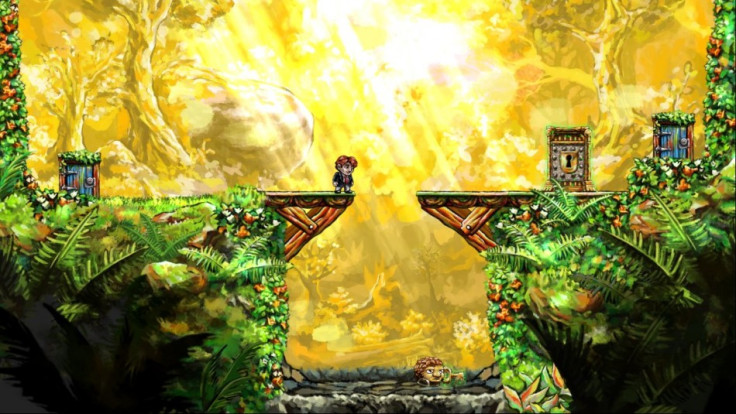
Distribution is where it's at. Richard Hofmeier, creator of Cart Life, says its financial promise that's attracting people to independent games:
"It could just be that these games are getting better, which is what I'd rather believe, but I'm a bit suspicious too. I think that it's actually larger commodification that's made it more appealing recently. People are surprised by the amount of money these little craft projects can make...there's this gold rush of iPhone apps and flash games.
"At things like IndieCade, the Independent Games Festival - the Baftas, even - some of these rowdy, raucous punk-spirited games are being elevated. They're being introduced to an audience with different standards and it produces some interesting heat.
"Maybe why they're good is because they're weird or divergent or perverse or new. They're off in the wild. But I think the value of these games will manifest in more mainstream entertainment down the line."
Staunch and energetic
It's important not to get hysterical - there's nothing to say that Phil Fish's next game is going to have chainsaw guns, micro-transactions and DLC. Rather, it's a question of principal. If independent game developers are going to get the kind of exposure they want and deserve, will that mean making concessions that they wouldn't have had to in the past?
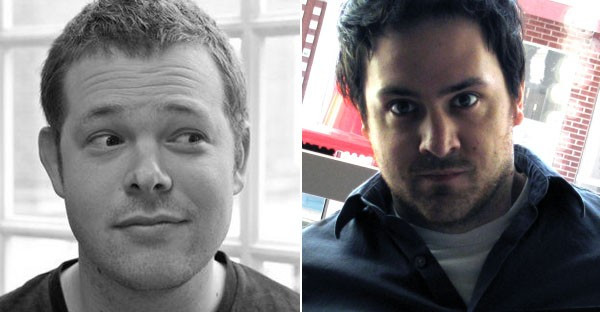
"I think there are different reasons people make indie games," says Mike Bithell. "Totally there are indie games where it's like, screw you Call of Duty, but there are also games like Cart Life, a dude who wants to get a message across that he's not seen elsewhere. There are a lot of reasons indie games are made - another I think it's fair to say is that people want to get rich.
"There are punks but there's also status quo. Puzzle platfromers are certainly an established genre with indie developers. As we enter a second or third generation of indie games, a formula is starting to creep in. Indie has the potential to be that - it's not as cut and dry. There are people who are just making rip offs of other indie games."
And again, why not? Independent or otherwise, being a game developer is a job and everyone has bills to pay. There's nothing dangerous about making money from your work; typically, it's the people posturing about "not selling out" who are just angry that they're not getting paid.
But, at the moment at least, there's something staunch and energetic and cool about independently made games that it feels like better distribution might compromise. Like Bing on the stage of Hot Shots, it'd be a tragedy to watch them get swallowed by the mainstream.
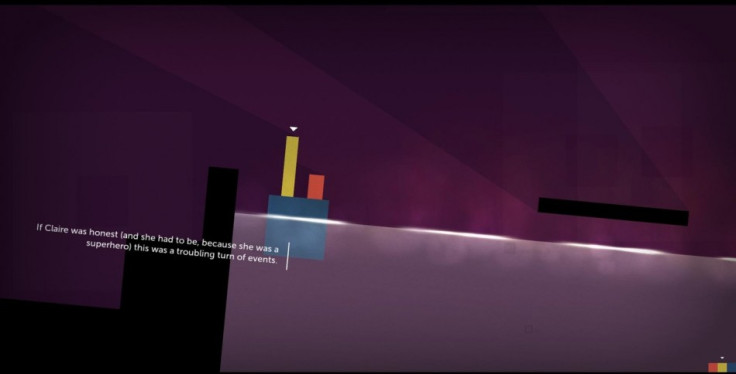
"They can't be classified or categorised in a genre so easily," says Richard Hofmeier. "Games made independently do new things for which we don't really have language. You can have a great idea that doesn't need a powerful machine to run, it's not a commercial commodity, but they're beautiful; they're human. Indie isn't a genre, it defies genre; it's none of the above.
"The reliable formulas, even though they produce this electric entertainment commodity, start to lack variety. There's a bottleneck. So, maybe gum-chewing high school dropouts like myself can bring something new to the table. At my most audacious I want to broaden people's notions, I want to show them other things are possible."
Chewing gum
In order to retain that audaciousness, but still get it in front of people's eyes, the role of distributors needs to change. As Mike Bithell was saying, it's about providing a service.
Thankfully, that seems to be happening. Compared to a decade or so ago when computer games only came in boxes, now, on internet browsers and even consoles, online distributed games are commonplace. As all of game distribution slowly moves toward digitisation, marketing for indie games will become simpler and less expensive. Without having to box them and put them on shelves, publishers will have more confidence to just let indie games be.
"Steam is really pushing indie games," says Bithell. "Especially with Thomas, I always refer to it as like the chewing gum in the supermarket. I presume that it's like 'while I'm here, I may as well make that small purchase with a few quid.' I think indie has done well from that mind-set.
"If you look at the very start, those games were all made by one or two people. What happened was the technology got really powerful; it hit a point in the mid to late Nineties where you couldn't make something that would compete and be visible to people in one or two man teams. The other thing was that you had to put it on a disc.
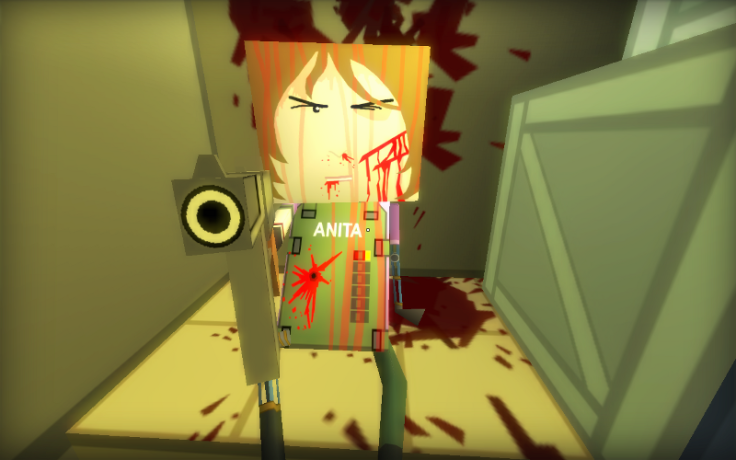
"I remember seeing these £3 budget games on the shelf when I was a kid but they were awful. It was the same idea - they were making them cheap - but because they had to go mainstream with it they were making rip-offs of things.
"Then online distribution happened and that's what really catapulted indie, the fact that I can make a game and sell it to an Australian and it costs me nothing. You can kind of chart the rise of the indie with the rise of online distribution."
And that, surely, is the best, most surreptitious way for independent games to permeate the mainstream. Whereas before it was AAA games in the shop and independent games on the download store, now they're starting to merge. It's likely that the next generation of game consoles will be the last to even include disc drives and once everyone is downloading their games from PSN or Xbox Live, it will allow distributors to effectively market independent games without shelling out on packaging - the same tens of millions going to download the latest Call of Duty will also run into adverts for indie games.
There's a chance that punk and pop will, for once, successfully merge.
"Even the description of indie...I think it's inevitable this is going to be torn down," says Hofmeier. "We're going to be educated that these words don't fit. We're all kind of bloodthirsty...there's this very exciting cross pollination right now."
"It's often the mainstream press that's fuelling this," says Bithell. "I think what happened is indie games got fashionable...It's a cool story, one or two people working in their spare time, working cheaply. The story got out; it got exciting to a lot of people.
"But also, I think people's tastes are widening. I wouldn't say indie's success is AAA's failure; I think there's room for all of us to exist."
© Copyright IBTimes 2025. All rights reserved.






















